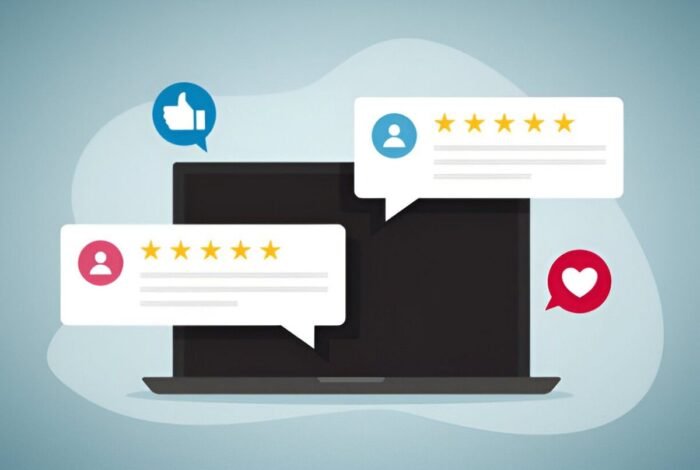In today’s digital age, maintaining a strong online presence is essential for businesses of all sizes. A key component of this is managing your reputation across various online platforms. I have realized that protecting your brand is not just about delivering great products or services; it’s also about controlling how your business is perceived online. Online reviews, social media mentions, and blog posts can all impact your reputation, sometimes in ways you can’t predict. That’s where reputation management software comes in. Over the years, I’ve explored a variety of tools designed to help businesses like mine protect their image and respond to online feedback swiftly. In this article, I will discuss the best reputation management software options that can help safeguard your brand and improve your online presence.
What is Reputation Management Software?
Reputation management software allows businesses to monitor, manage, and improve their online image. It aggregates online reviews, mentions, and feedback across different platforms, making it easier to respond to customer concerns and track sentiment. By providing insights into how customers feel about your business, these tools help you identify both the positives and areas for improvement. In my experience, having such software is crucial because it gives you control over your online reputation.
Why Do You Need Reputation Management Software?
Having a solid online reputation is no longer optional. Potential customers, investors, and partners increasingly rely on online reviews and feedback when making decisions. A single negative review, if left unchecked, can significantly damage your brand. I’ve seen businesses lose customers simply because they failed to manage their reputation effectively. Reputation management software provides the tools needed to track feedback in real time, engage with your audience, and even take proactive steps to improve how you are perceived.
Without proper reputation management, you could be losing out on business opportunities or facing potential crises. Here are a few reasons why investing in reputation management software is crucial:
- Real-time Monitoring: It tracks mentions of your business across the internet, giving you the ability to respond quickly.
- Improved Customer Engagement: You can easily interact with customers, resolve issues, and build better relationships.
- Increased Trust: A positive reputation helps foster trust, which leads to more customers and higher retention rates.
- Competitive Advantage: By monitoring your competitors’ reputations, you can identify opportunities to differentiate your business.
Key Features to Look For in Reputation Management Software
When choosing reputation management software, I recommend looking for the following features to ensure that it aligns with your business needs:
- Review Monitoring: The software should track reviews on multiple platforms, such as Google, Yelp, and social media.
- Sentiment Analysis: This feature helps you gauge whether mentions of your business are positive, negative, or neutral.
- Response Management: It should allow you to reply to reviews directly from the dashboard.
- Reporting and Analytics: Access to detailed reports and analytics will help you assess trends and measure your reputation over time.
- Competitor Tracking: Knowing what’s being said about your competitors can help you refine your strategy.
- Automated Alerts: You should receive notifications when your business is mentioned online, enabling you to act fast.
Top Reputation Management Software Options
After thoroughly reviewing several options, I’ve narrowed it down to five of the best reputation management software solutions for businesses looking to protect their brands. Below is a comparison table summarizing key features, pricing, and other important aspects of each software.
| Software | Key Features | Pricing Model | Ideal For |
|---|---|---|---|
| Brand24 | Social listening, review tracking, sentiment analysis, alerts, reporting | Starting at $49/month | Small to medium-sized businesses |
| Reputation.com | Review monitoring, review generation, reporting, customer feedback management | Custom pricing | Enterprises, large businesses |
| Podium | Two-way messaging, review generation, local SEO, web chat | Starting at $289/month | Businesses with high local presence |
| Birdeye | Review monitoring, sentiment analysis, survey collection, webchat | Starting at $299/month | Service-based businesses, large corporations |
| Yotpo | Review management, customer feedback, visual marketing integration | Starting at $19/month | E-commerce businesses |
1. Brand24
Brand24 is a powerful tool that I found particularly useful for monitoring social media, blog posts, and reviews across the web. It offers real-time monitoring and alerts whenever your brand is mentioned online. One feature that stands out to me is its sentiment analysis, which automatically categorizes mentions as positive, negative, or neutral. This helps me understand how people feel about my business at a glance. The platform is easy to use and offers detailed reports that are helpful for improving customer satisfaction.
Pros:
- Affordable for small businesses
- Real-time alerts
- Easy-to-use dashboard
- Comprehensive review monitoring
Cons:
- Limited advanced features on lower-tier plans
- Not as suitable for very large enterprises
2. Reputation.com
For large enterprises, I recommend Reputation.com, which is one of the most comprehensive reputation management tools available. It not only monitors reviews but also helps generate new reviews from customers and provides detailed analytics. This platform is great for businesses looking to improve their online presence on a large scale. What I really appreciate is its focus on customer feedback management, helping businesses improve based on actual customer experiences.
Pros:
- Scalable for large businesses
- Offers review generation features
- Robust analytics and reporting tools
- Excellent customer support
Cons:
- Custom pricing can make it expensive
- Might be overwhelming for small businesses due to its range of features
3. Podium
Podium focuses on improving local SEO and is ideal for businesses with a local presence. It excels in gathering reviews, managing customer feedback, and integrating customer communication into a single platform. The software allows for seamless two-way messaging with customers, which I find incredibly valuable for responding to reviews and inquiries quickly. It also offers a web chat feature, which can drive engagement on your website.
Pros:
- Great for local businesses
- Two-way messaging feature
- Web chat for customer engagement
- Strong review generation capabilities
Cons:
- Higher starting price
- May not offer as many features for larger enterprises
4. Birdeye
Birdeye offers a broad range of reputation management features, including review monitoring, sentiment analysis, and surveys. It’s particularly useful for service-based businesses that need to manage customer feedback and improve their online reputation. The platform integrates with Google, Facebook, and other review sites to help you maintain a positive brand image. One standout feature is its webchat tool, which provides real-time customer engagement.
Pros:
- Excellent for service-based businesses
- Webchat for real-time customer interactions
- Comprehensive review management
- Easy-to-understand dashboard
Cons:
- Higher pricing for smaller businesses
- Focus on services rather than product-based companies
5. Yotpo
Yotpo is a robust reputation management tool, particularly popular among e-commerce businesses. It helps collect customer reviews and feedback, which can be displayed on your website or social media. Yotpo also allows integration with visual marketing tools, such as Instagram, to show off user-generated content. This platform is great for building trust with your audience through authentic reviews and testimonials.
Pros:
- Great for e-commerce businesses
- Integration with social media platforms
- Allows collection of visual marketing content
- Affordable for small businesses
Cons:
- Limited features for non-e-commerce businesses
- Advanced features require higher-tier pricing
How to Choose the Right Reputation Management Software
Choosing the right reputation management software depends largely on your business size, needs, and budget. Here’s how I would go about making a decision:
- Identify Your Business Type: Are you a local business, an e-commerce company, or a large enterprise? Software like Podium and Birdeye are ideal for service-based and local businesses, while Reputation.com is better for large enterprises.
- Assess the Features You Need: Do you need a tool that simply monitors reviews, or are you looking for something that can help generate reviews, track sentiment, and improve customer satisfaction?
- Consider Your Budget: If you’re just starting out, tools like Brand24 and Yotpo offer affordable plans. Larger businesses with more advanced needs may need to invest in higher-priced options like Reputation.com.
- Look at Integration Capabilities: Make sure the tool integrates with your website and the review platforms you use most frequently, such as Google, Yelp, and Facebook.
- Trial the Software: Many software providers offer free trials. Take advantage of this to test the features and see if it suits your business.
Conclusion
In conclusion, reputation management software is an invaluable tool for protecting your brand. By investing in the right software, you can monitor reviews, manage customer feedback, and ensure that your business maintains a positive online presence. Based on my experience, I highly recommend exploring the options above, as they provide various features that can cater to different business needs. Protecting your brand is an ongoing effort, but with the right tools, it becomes much easier to stay on top of your reputation and ensure long-term success.
Each software I’ve discussed here offers unique benefits, and by considering your specific requirements, you can select the one that best fits your business. If you want to succeed in the digital world, reputation management should be at the top of your priority list, and these tools will help you get there.





